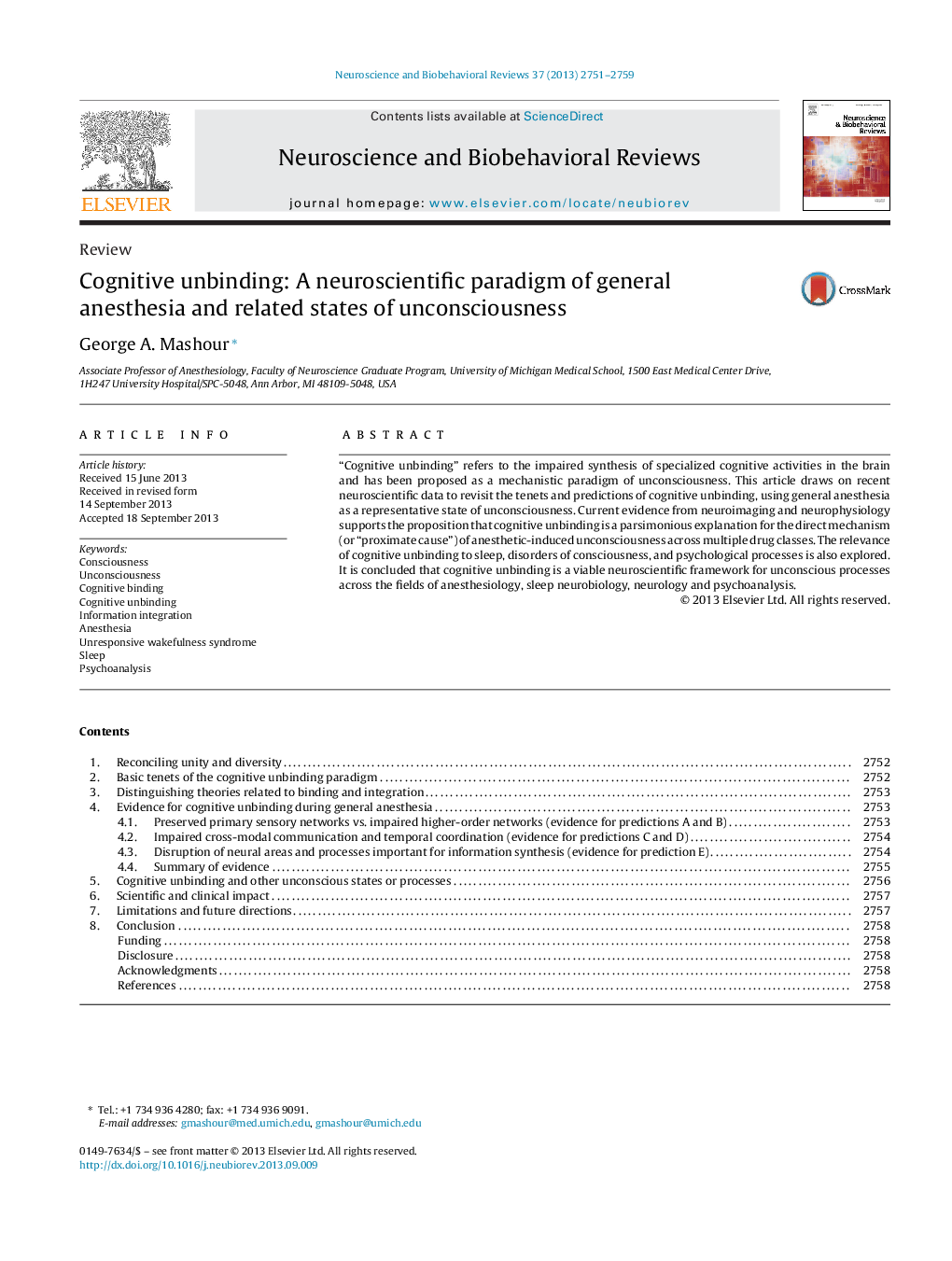| Article ID | Journal | Published Year | Pages | File Type |
|---|---|---|---|---|
| 10461699 | Neuroscience & Biobehavioral Reviews | 2013 | 9 Pages |
Abstract
“Cognitive unbinding” refers to the impaired synthesis of specialized cognitive activities in the brain and has been proposed as a mechanistic paradigm of unconsciousness. This article draws on recent neuroscientific data to revisit the tenets and predictions of cognitive unbinding, using general anesthesia as a representative state of unconsciousness. Current evidence from neuroimaging and neurophysiology supports the proposition that cognitive unbinding is a parsimonious explanation for the direct mechanism (or “proximate cause”) of anesthetic-induced unconsciousness across multiple drug classes. The relevance of cognitive unbinding to sleep, disorders of consciousness, and psychological processes is also explored. It is concluded that cognitive unbinding is a viable neuroscientific framework for unconscious processes across the fields of anesthesiology, sleep neurobiology, neurology and psychoanalysis.
Keywords
Related Topics
Life Sciences
Neuroscience
Behavioral Neuroscience
Authors
George A. Mashour,
